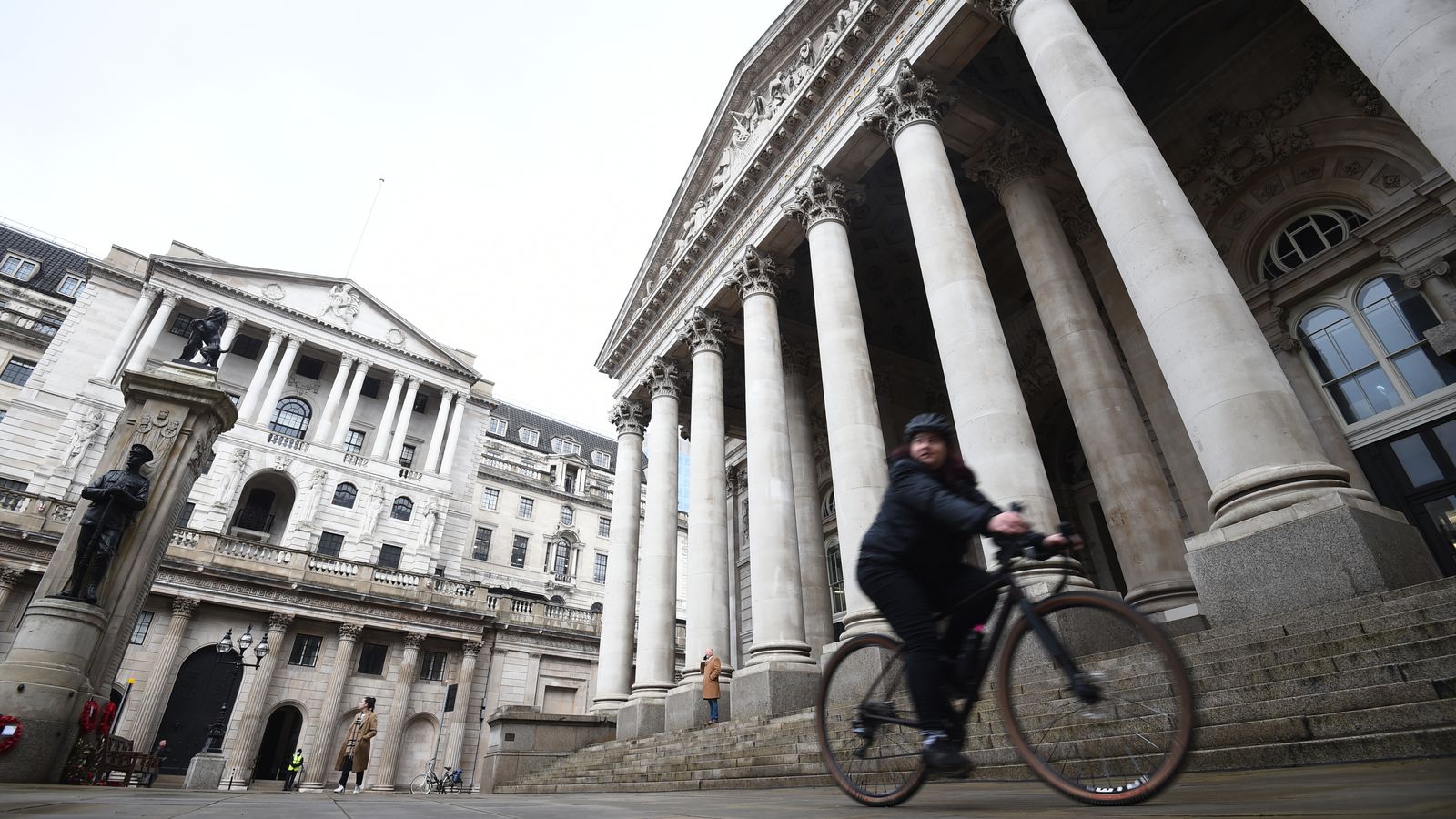The Bank of England has warned of a “more pronounced period of above-target inflation” than previously expected, amid differences over dealing with the increase.
The monetary policy committee (MPC), which kept interest rates at 0.1%, retained the economy-boosting quantitative easing programme at £895bn, following a seven to one vote in favour.
Opposing it, committee member Michael Saunders had argued the government bond purchases should be cut to £830bn.
There had been speculation the Bank could halt the measure as the UK’s economic recovery spurs on sharp rises in the cost of living.
The Bank’s former chief economist Andy Haldane had repeatedly called for a £50bn QE cut before he left the committee last month.
However, others felt it was not the right time to reduce support for the economy, amid continuing uncertainty over coronavirus.
The central bank believes the UK’s gross domestic product (GDP) will rebound by 7.25% in 2021 – unchanged from the previous estimate.
However, it now expects the economy to then grow by 6% in 2022, compared to a previous 5.75% forecast.
The MPC said that despite the spread of the Delta variant of COVID-19, the pandemic’s impact on the UK economy would fade further over time.
It said: “UK GDP (gross domestic product) is projected to recover further over the remainder of the year, reaching its pre-pandemic level in (the fourth quarter of) 2021, with demand growth boosted by a waning impact from COVID.
“Further out, the pace of GDP growth is expected to slow towards more normal rates, partly reflecting the gradual tightening in the stance of announced fiscal policy.”
It added: “Frictions in the labour market are judged likely to dissipate over the forecast period, boosting growth in effective supply capacity.
“There is uncertainty around these judgments, including how the economy will adjust to the end of the furlough scheme.”
The committee also warned of a “more pronounced period of above-target inflation in the near term than expected in the May report”.






















